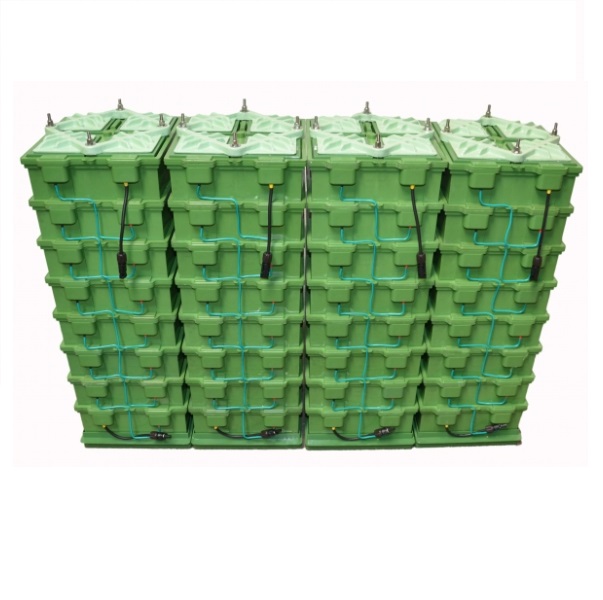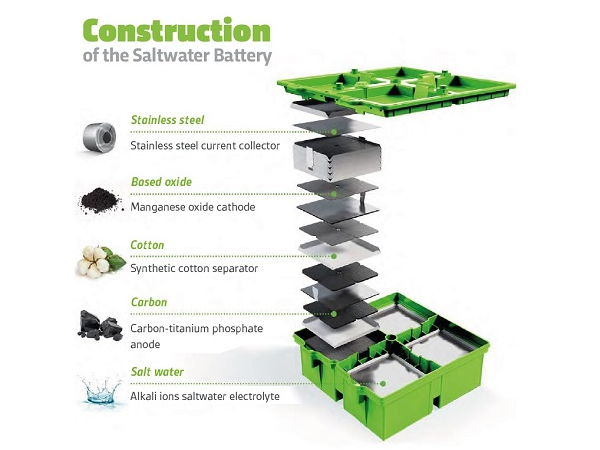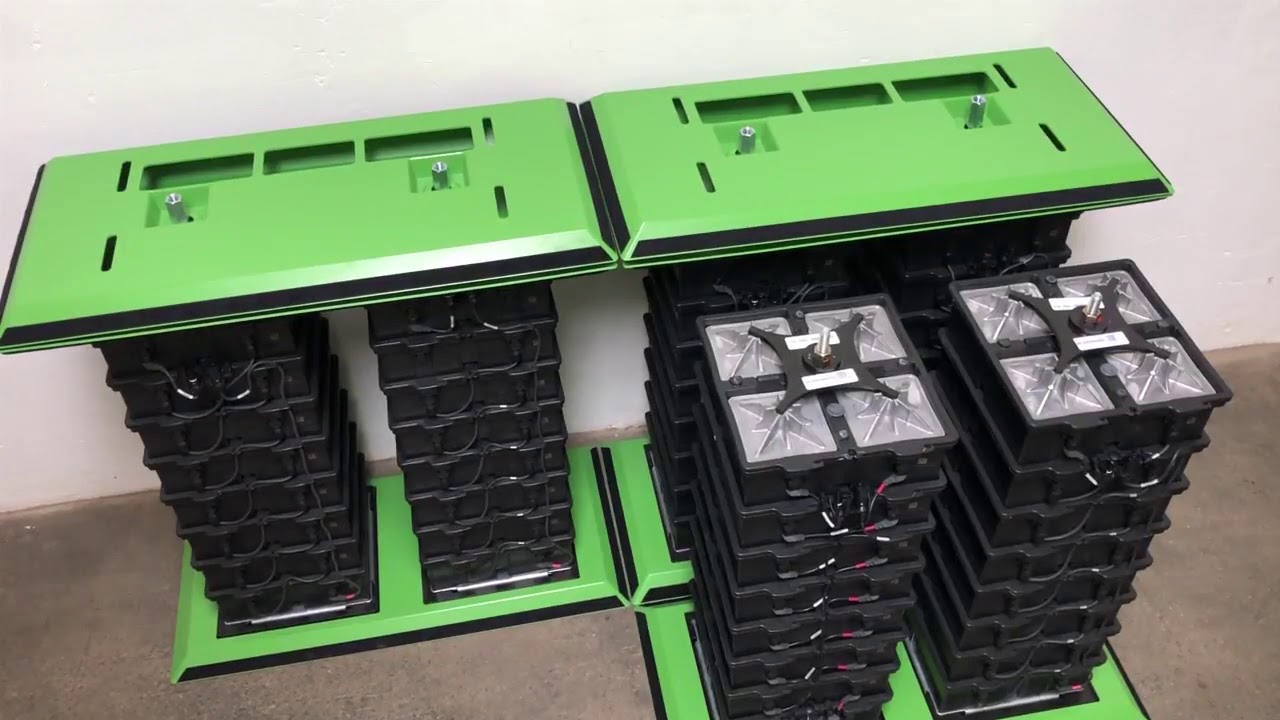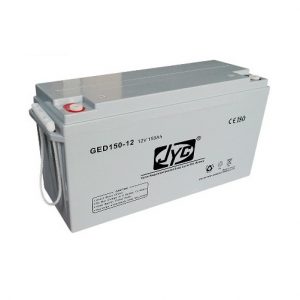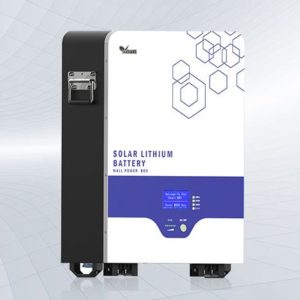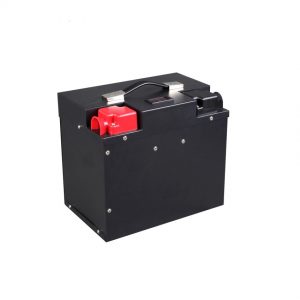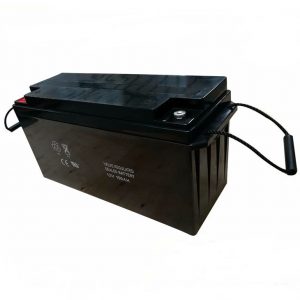- Outback 120/240V Radian Inverter
- DC charger (if DC coupled)
- Mate3s Controller
- AC/DC Load Center (Bus)
- HUB Communications Manager
- Flexnet Monitoring System
- Combiner Box /BMS
- All Battery Connections/Cables
Safety
While commercially-available batteries (like the Tesla Powerwall or LG Chem RESU) are safe for use, saltwater batteries excel in this category. The saltwater in the system means that there is essentially no fire risk with saltwater battery technology.
Additionally, saltwater batteries don’t use the same toxic metals and other materials that most lead-acid or lithium-ion batteries use.
Easily recyclable
Another advantage of the lack of heavy metals and toxic materials in saltwater batteries is that they’re easier to recycle. As the use of batteries continues to increase worldwide, having plans in place for recycling used battery components will be essential to making batteries a truly sustainable energy technology.
Long lifecycle
Saltwater batteries have long lifecycles, which means they can be used for longer periods of time than many other battery options on the market. This has many implications – for example, you likely wouldn’t have to replace a saltwater battery as often as you would with most lithium-ion batteries, which can save you money in the long run.

